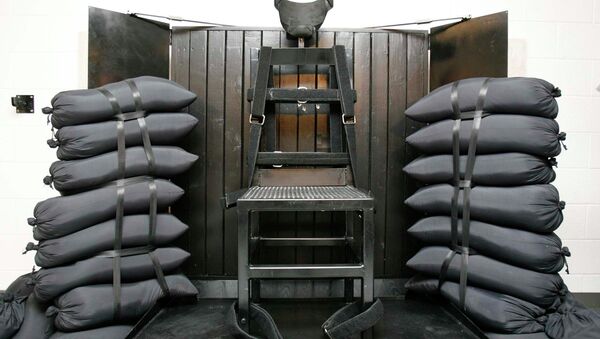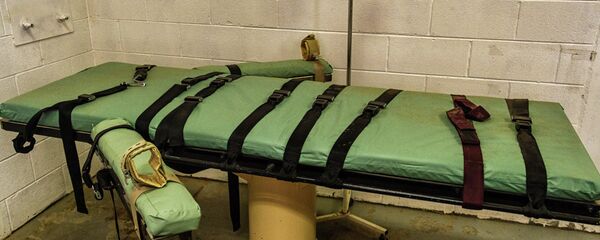On Tuesday, the Utah legislature passed a bill that would allow executions to be carried out by firing squads if lethal injection drugs are not available. The move comes amid drugs manufacturers either having stopped producing the necessary chemicals or prohibiting their use for the death penalty.
"It is only because the state wants to assert that it will not back down on executions solely because of the restrictions on lethal injection drugs. The bill to allow the firing squad is largely a political statement and is unlikely to result in widespread use of this method," Richard Dieter, executive director of the non-profit organization Death Penalty Information Center, told Sputnik.
Dieter also noted that even if Utah fully enacts the bill, it will be reviewed in court for months or even years. "It could very well be struck down, especially if lethal injections are being carried out in other states, thus showing there is another more humane alternative," he added.
Firing squads are usually composed of volunteers, often with a background in law enforcement and with expertise in firearms, Dieter explained.
The squad consists of five members, and one of the rifles contains a blank rather than a bullet, so that the responsibility for actually causing the death is defused.
Reinstating firing squads is considered to be a "reversion back to a method of execution that the state had abandoned and that no other state has adopted," Dieter said.
The state banned execution by firing squads in 2004. The reason behind the move was to put an end to "spectacles with media and curiosity seekers" that executions used to turn into, the executive director of the Death Penalty Information Center explained.
Within the United States, only 32 states out of 50 allow capital punishment. Thirty-five executions were carried out in the United States in 2014, according to the Death Penalty Information Center. Nine prisoners are on death row in Utah at present.




